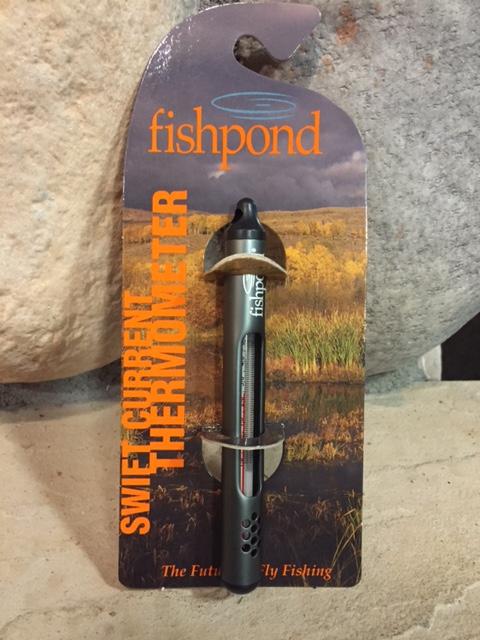Don't Get Yourself in Hot Water
by Jon Easdon
One of the most important factors in a trout’s environment is cold, clean water. Trout LOVE cold water and therefor thrive in places like Colorado. Even at our elevation, though, most of our streams, lakes, and rivers can be negatively affected by water temperature.
With the direct overhead sun and long days, these waters will warm up quickly. It does not take long for the median water temperature to reach dangerous levels that can threaten a fish’s health. And we don’t have to be in a drought to see these temps rise; it can happen during a normal summer.
Optimal water temperature for trout is about 40 to 65 degrees, plus or minus a few degrees on each side. On the high side of these temperatures, trout can easily become stressed and lethargic. When trout are caught in high water temperatures, the mortality rate is extreme. Even if the fish was properly handled and released, the chances are very high that fish will not survive. In addition, trout will actually stop growing in high water temperatures.
 Some of our local tailwaters will release water from the reservoirs through valves lower in the dam, thus putting cold water into the system. This is a huge tool in areas such as Deckers.
Some of our local tailwaters will release water from the reservoirs through valves lower in the dam, thus putting cold water into the system. This is a huge tool in areas such as Deckers.
A good way to combat the adverse effects of the heat in the summer is to fish either in the morning or the evening. The water temperature will be highest in the middle of the day.
Where you fish is important, too. Trout will move into more oxygenated areas in the river when temps are high to seek relief. Riffles, deeper runs, rapids, etc. tend to hold cooler water and more oxygen.
A good tool to have on the river is a thermometer. We have several thermometers in the shop. My personal favorite is the Fishpond swift current stream thermometer.
Most fishermen I know have an unspoken rule that when the water temperature reaches 68 degrees, it’s time to go home. I urge you to follow a similar guideline to ensure the survival of healthy trout populations in our local fisheries.
